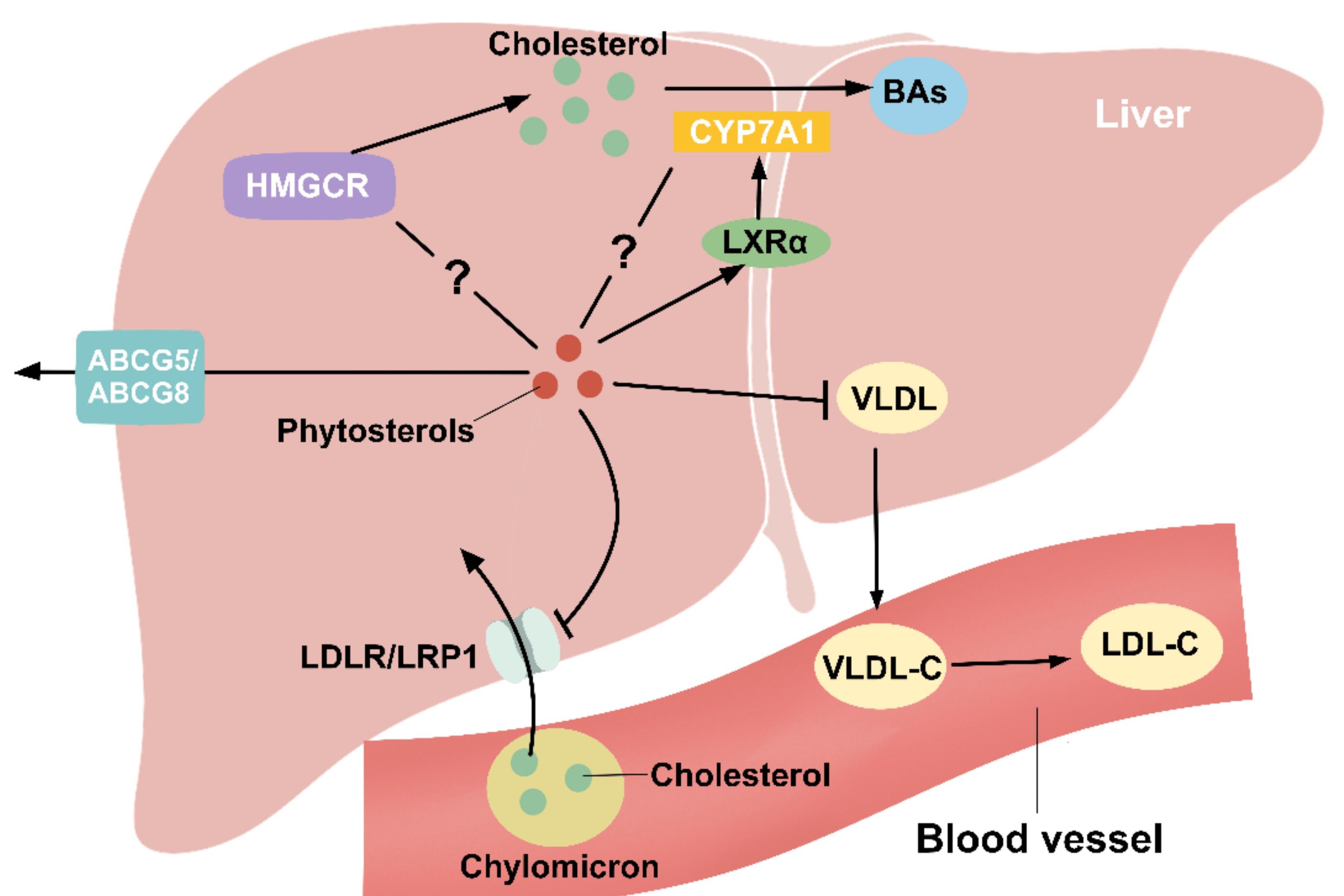
Cholesterol metabolism is a vital process in our bodies, but how much do you really know about it? Cholesterol often gets a bad rap, but it's essential for making hormones, vitamin D, and substances that help digest foods. Your liver produces most of the cholesterol in your body, while the rest comes from your diet. Balancing good (HDL) and bad (LDL) cholesterol is crucial for heart health. Did you know that high cholesterol has no symptoms? That's why regular check-ups are important. Understanding how cholesterol works can help you make better lifestyle choices. Ready to learn some surprising facts about cholesterol metabolism? Let's dive in!
What is Cholesterol?
Cholesterol is a waxy substance found in your blood. It's essential for building cells, but too much can lead to health problems. Let's dive into some fascinating facts about cholesterol metabolism.
-
Cholesterol is produced by the liver. Your liver makes all the cholesterol your body needs.
-
Cholesterol is also found in foods. Animal products like meat, cheese, and eggs contain cholesterol.
-
There are two types of cholesterol. Low-density lipoprotein (LDL) is often called "bad" cholesterol, while high-density lipoprotein (HDL) is known as "good" cholesterol.
-
LDL cholesterol can build up in arteries. This buildup can lead to blockages, increasing the risk of heart disease and stroke.
-
HDL cholesterol helps remove LDL cholesterol. HDL carries LDL away from the arteries and back to the liver, where it's broken down.
How Cholesterol is Metabolized
Understanding how cholesterol is processed in the body can help you make healthier choices.
-
Cholesterol is absorbed in the intestines. After eating, cholesterol from food is absorbed in the small intestine.
-
The liver packages cholesterol into lipoproteins. These lipoproteins transport cholesterol through the bloodstream.
-
LDL delivers cholesterol to cells. Cells use cholesterol to build membranes and produce hormones.
-
HDL collects excess cholesterol. HDL picks up extra cholesterol from cells and tissues.
-
The liver removes excess cholesterol. HDL returns cholesterol to the liver, where it's excreted in bile.
Factors Affecting Cholesterol Levels
Several factors can influence your cholesterol levels, both positively and negatively.
-
Diet plays a significant role. Foods high in saturated and trans fats can raise LDL cholesterol levels.
-
Exercise can boost HDL cholesterol. Regular physical activity helps increase good cholesterol.
-
Genetics influence cholesterol levels. Some people inherit genes that cause high cholesterol.
-
Age and gender matter. Cholesterol levels typically rise with age, and women often have higher HDL levels than men.
-
Smoking lowers HDL cholesterol. Tobacco use can decrease good cholesterol and damage blood vessels.
Health Risks of High Cholesterol
High cholesterol can lead to serious health issues if not managed properly.
-
High cholesterol increases heart disease risk. Elevated LDL levels can cause plaque buildup in arteries.
-
It can lead to atherosclerosis. This condition involves the hardening and narrowing of arteries.
-
Stroke risk is higher with high cholesterol. Blocked arteries can reduce blood flow to the brain.
-
Peripheral artery disease (PAD) is a concern. High cholesterol can cause blockages in arteries supplying blood to the limbs.
-
High cholesterol can lead to heart attacks. Plaque buildup can rupture, causing a clot that blocks blood flow to the heart.
Managing Cholesterol Levels
Taking steps to manage cholesterol can improve overall health and reduce risks.
-
Eating a heart-healthy diet helps. Focus on fruits, vegetables, whole grains, and lean proteins.
-
Regular exercise is crucial. Aim for at least 30 minutes of moderate exercise most days.
-
Medications can help. Statins and other drugs can lower LDL cholesterol.
-
Regular check-ups are important. Monitoring cholesterol levels helps track progress and make adjustments.
-
Reducing alcohol intake can benefit cholesterol. Excessive drinking can raise cholesterol levels.
Interesting Facts About Cholesterol
Here are some lesser-known facts that might surprise you.
-
Not all cholesterol is bad. Your body needs some cholesterol to function properly.
-
Cholesterol is vital for hormone production. It's a building block for hormones like estrogen and testosterone.
-
Cholesterol helps produce vitamin D. Sunlight converts cholesterol in the skin to vitamin D.
-
Even plants contain sterols. Plant sterols can help block cholesterol absorption in the intestines.
Final Thoughts on Cholesterol Metabolism
Understanding cholesterol metabolism is crucial for maintaining good health. Cholesterol isn't just a villain; it plays vital roles in hormone production, digestion, and cell structure. However, too much of the wrong type can lead to serious health issues like heart disease. Balancing LDL and HDL levels through diet, exercise, and sometimes medication is key. Foods rich in fiber, omega-3 fatty acids, and antioxidants can help manage cholesterol levels effectively. Regular check-ups and blood tests are essential for monitoring your cholesterol. Small lifestyle changes, like reducing saturated fats and quitting smoking, can make a big difference. Remember, knowledge is power. By staying informed and proactive, you can take control of your cholesterol and overall health. Keep these facts in mind, and you'll be better equipped to make healthier choices every day.
Was this page helpful?
Our commitment to delivering trustworthy and engaging content is at the heart of what we do. Each fact on our site is contributed by real users like you, bringing a wealth of diverse insights and information. To ensure the highest standards of accuracy and reliability, our dedicated editors meticulously review each submission. This process guarantees that the facts we share are not only fascinating but also credible. Trust in our commitment to quality and authenticity as you explore and learn with us.
